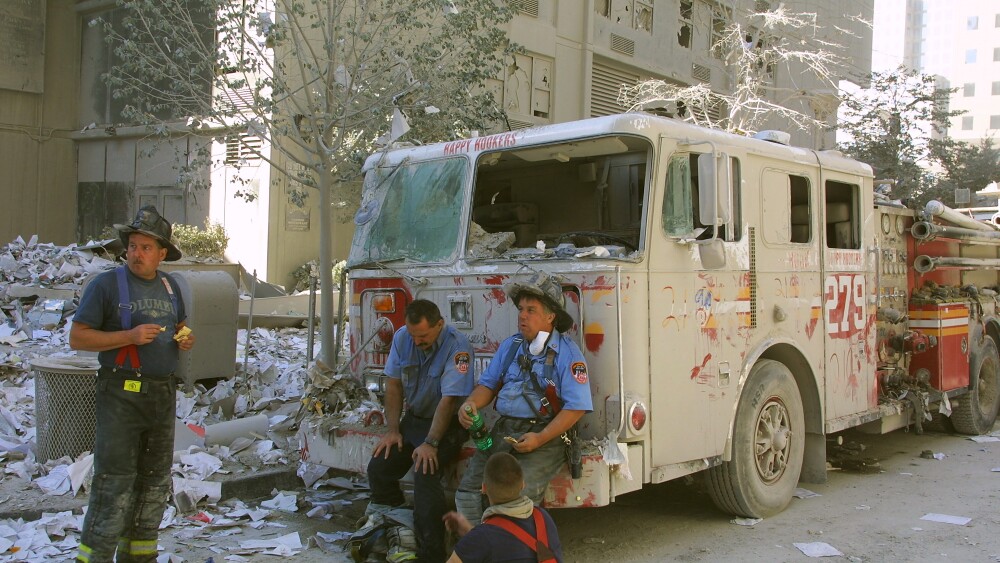By Chris Sommerfeldt and Thomas Tracey
New York Daily News
NEW YORK — A City Council bill set to be introduced this week would direct the Department of Investigation to use its oversight powers to obtain records detailing what the city knew about toxic air conditions in Manhattan in the wake of the 9/11 attacks — opening up a new front in a long-running effort to unearth the records.
Several consecutive mayoral administrations, including Eric Adams’ current one, have refused to disclose the documents amid concerns that their release could result in the city facing an avalanche of lawsuits from first responders and others subjected to hazardous toxins near ground zero after the Sept. 11, 2001 attack.
That’s in spite of a tranche of Freedom of Information requests seeking their release, demands for transparency from members of Congress and a lawsuit filed this June by a 9/11 survivors’ advocacy group asking a state judge to intervene.
Amid the stalemate, Manhattan Councilwoman Gale Brewer, a senior Democrat who chairs the legislative body’s Oversight and Investigation Committee, plans to introduce the new Council bill at Thursday’s stated meeting.
The bill, a copy of which was exclusively provided to the Daily News ahead of its introduction, would invoke a never-before-used provision in the City Charter that allows the Council to order the Department of Investigation to undertake investigations. Under the bill, the DOI would be ordered under that authority to “conduct an investigation to ascertain the knowledge possessed by mayoral administrations on environmental toxins produced by the September 11, 2001 terrorist attacks at the World Trade Center .”
The DOI would have two years to finish the probe, though it’d be required to produce biannual updates on its inquiry. At the end of the two years, the department would produce a final report laying out all the information it uncovered, the bill says.
In an interview, Brewer noted the DOI has subpoena power, which she said the agency should use as part of its investigation to secure the records.
“DOI can subpoena information and, if there’s criminal suspicion, they can even refer things to federal authorities. This is just one more attempt to get these records out, and it’s interesting that it hasn’t been done before, so I at least want to try,” Brewer told The News.
Spokespeople for Adams’ office didn’t return requests for comment Tuesday.
Brewer’s bill is a binding resolution, as opposed to a legislative introduction, meaning the mayor couldn’t veto it. Still, Adams’ administration could presumably mount a court fight against any DOI subpoenas issued for the records.
Brewer’s bill will go through a Council hearing before any vote.
“Fighting City Hall to get the city to even admit that records exist has been a struggle, but now that we have (Brewer) on our side, I expect we will get answers,” said Benjamin Chevat, executive director of 911 Health Watch, the group that filed the June lawsuit.
According to a 2022 report from the New York Times, an aide to Robert Hardin, a top deputy to then-Mayor Rudy Giuliani, warned in an October 2001 memo the city could over “the next few decades” face some 10,000 liability claims from New Yorkers who were exposed to hazardous toxins at Ground Zero and later developed health issues. That memo is among the records 9/11 survivors’ advocates have long sought direct access to, but every mayoral administration since Giuliani’s has refused to release them.
Some 9/11 survivors’ advocates have estimated the actual number of potential liability claims is well north of 10,000 at this point.
More than 125,000 people had as of earlier this year been enrolled in the U.S. Center for Disease Control’s WTC Health Program, which was launched by Congress in 2010 to fund medical care for individuals exposed to Ground Zero toxins. Of them, roughly 6,900 have died, more than double the 2,996 people who perished in the 2001 terror attack in Manhattan, federal data shows.
Council Speaker Adrienne Adams, the body’s top Democrat, said Brewer’s bill could help bring some solace to the families of those victims.
“Our city government owes New Yorkers transparency about its knowledge on the toxins produced by the attacks,” the speaker said. “This resolution takes a crucial step towards requiring disclosure of public health information, which should be considered a basic responsibility of government in a democracy.”
©2024 New York Daily News.
Visit nydailynews.com.
Distributed by Tribune Content Agency, LLC.

















